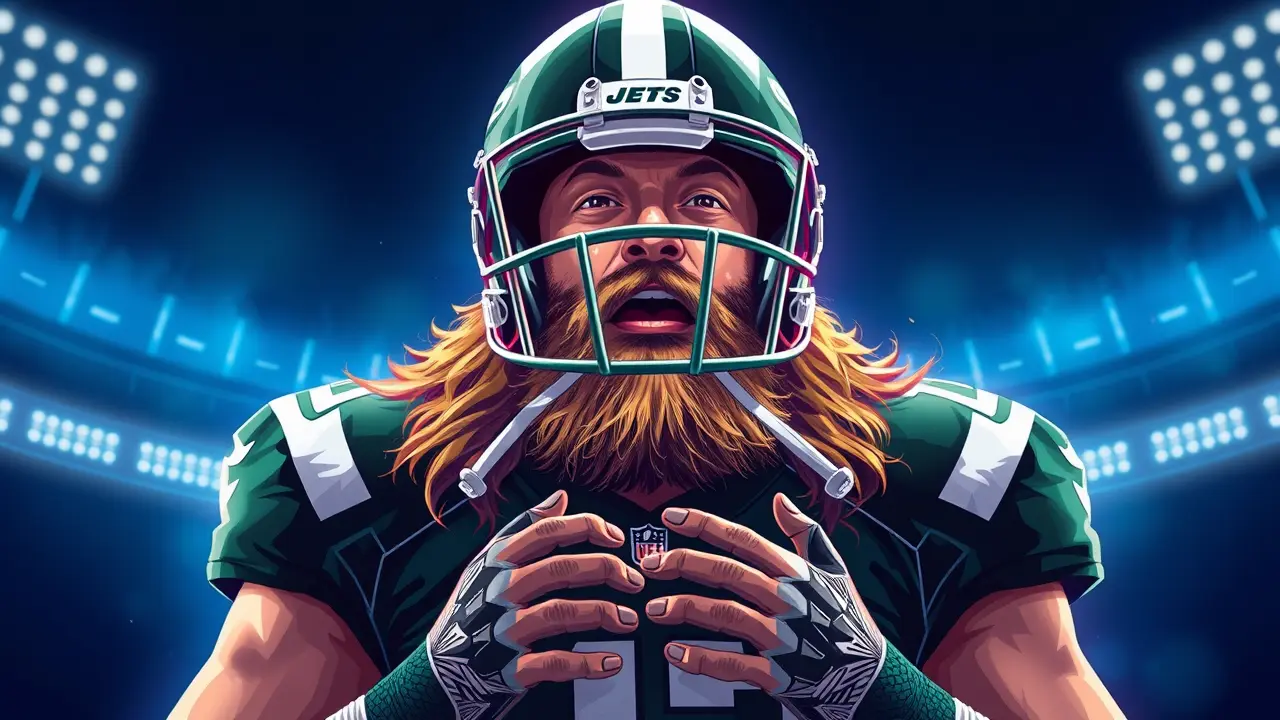- News
- football
- Former New York Jets Player Nick Mangold Asks Fanbase for Kidney Donation: ‘Thought I’d Have More Time’
Former New York Jets Player Nick Mangold Asks Fanbase for Kidney Donation: ‘Thought I’d Have More Time’
The gridiron, that hallowed ground where titans clash and legends are forged, has produced warriors of unparalleled resilience, but perhaps none face a more profound battle than Nick Mangold, the New York Jets' legendary center whose very body has now become the final, critical line of scrimmage. Mangold, a seven-time Pro Bowler and the 29th overall pick in the 2006 NFL Draft whose name is eternally etched into the Jets' Ring of Honor, has taken the fight public, issuing a heartfelt and urgent plea to the very fanbase that once roared his name—a plea not for cheers, but for a kidney.This isn't a play drawn up in a huddle; it's a Hail Mary pass for life itself, a stark reminder that the physical toll of professional football can extend far beyond torn ligaments and concussions, manifesting in silent, internal battles that rage long after the stadium lights dim. Diagnosed with a genetic defect back in his rookie season of 2006, a fact he managed like a veteran quarterback reading a complex blitz, Mangold played through 171 games over 11 brutal seasons, a testament to a level of toughness and durability that would make ironmen like Iron Mike Webster nod in respect.Yet, the clock has finally run out on his body's ability to compensate. After a 'rough summer' that saw his condition accelerate, he is now undergoing dialysis, a grueling and time-consuming process that acts as an artificial kidney, filtering toxins from the blood—a far cry from the explosive power and precision required to anchor an offensive line against behemoths like Vince Wilfork.His statement, shared through the Jets' official channels, carries the weight of a man who always knew this day was coming but, like any great competitor, believed he could outlast it. 'I thought I would have had more time,' he wrote, a sentiment that echoes the career of every athlete forced into early retirement, a collision between indomitable spirit and biological reality.With no family members currently able to donate, Mangold has turned to the Green and White faithful, specifically seeking a donor with type O blood, a request that transforms the abstract concept of 'community' into a tangible, life-saving possibility. The process, facilitated by Columbia University Irving Medical Center, requires potential donors to use his full name and birthday—Nicholas Mangold, Jan.13, 1984—turning each submission into a potential game-winning touchdown in the most important contest of his life. Mangold’s situation casts a harsh spotlight on the broader, often overlooked, health crises facing NFL alumni, where the focus is frequently on CTE and orthopedic issues, while chronic illnesses like kidney disease can develop silently.His public appeal is not without precedent in the sports world; former NBA stars like Sean Elliott and Alonzo Mourning have undergone successful transplants, their stories becoming powerful narratives of survival and medical triumph. Yet, each case is unique, and the path Mangold walks is his alone, a path he navigates with the same positive focus and gratitude that defined his career.He credits his family as his 'rock,' a support system as crucial as any offensive line, and expresses deep gratitude for any individual who would consider the profound act of organ donation. This is more than a news item; it's a human drama playing out at the intersection of sports, medicine, and community.It’s a test of the bond between a player and his city, a measure of whether the loyalty forged in victory and defeat can transcend the stadium walls and manifest as a literal gift of life. As Mangold stays positive, focused on the path ahead and looking forward to getting back to full strength, the entire Jets community, and indeed the wider world of sports, holds its breath, hoping that a suitable donor emerges from the stands, ready to make the ultimate assist for a player who gave everything he had on the field.
JA
Jamie Larson123k2 days ago
wow this is so sad, saving this to read more carefully later. hope he finds a donor soon
0
